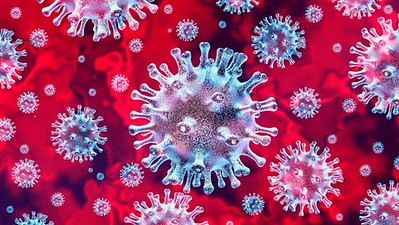More work before Health Department considers Nevirapine

DURBAN – The South African Department of Health yesterday (Wednesday) said it was “very pleased” with the results announced on Tuesday by researchers working on the South African Intrapartum Nevirapine Trials (SAINT) which showed a significant reduction in mother-to-child transmission of HIV.
However, the Department said further work was needed “to confirm the safety and efficacy”, particularly with regard to the development of resistance to Nevirapine.
On Tuesday, Dr Diane Moodley a researcher at King Edward Hospital in Durban presented the results of the SAINT study to the AIDS 2000 conference and said the research team was “perfectly happy” with the findings. In the same presentation, Dr James McIntyre of the Perinatal HIV Research Unit (PHRU) said the drug had not been found to have any adverse impact on the health of either the mothers or children.
When the health department was asked about this point, the Director General, Dr Ayanda Ntsaluba said they had been encouraged by the fact that the trial had shown that there were no signs of liver dysfunction. What was of concern was the question of resistance to the drug – one of the reasons which had been raised by the World Health Organisation when it had refused to endorse the drug earlier this year.
The Department of Health said they had yet to meet the researchers who had conducted the SAINT study and would be doing so soon after the AIDS 2000 Conference. During this meeting they would review all the available data as well as implications for public policy.
The Department said it had no problems with the costs of providing Nevirapine for mother to child transmission. “We reaffirm our commitment to implement affordable, safe and sustainable interventions to reduce mother-to-child transmission,” it said in a statement. – Health-e News
Author
Republish this article
This work is licensed under a Creative Commons Attribution-NoDerivatives 4.0 International License.
Unless otherwise noted, you can republish our articles for free under a Creative Commons license. Here’s what you need to know:
You have to credit Health-e News. In the byline, we prefer “Author Name, Publication.” At the top of the text of your story, include a line that reads: “This story was originally published by Health-e News.” You must link the word “Health-e News” to the original URL of the story.
You must include all of the links from our story, including our newsletter sign up link.
If you use canonical metadata, please use the Health-e News URL. For more information about canonical metadata, click here.
You can’t edit our material, except to reflect relative changes in time, location and editorial style. (For example, “yesterday” can be changed to “last week”)
You have no rights to sell, license, syndicate, or otherwise represent yourself as the authorized owner of our material to any third parties. This means that you cannot actively publish or submit our work for syndication to third party platforms or apps like Apple News or Google News. Health-e News understands that publishers cannot fully control when certain third parties automatically summarise or crawl content from publishers’ own sites.
You can’t republish our material wholesale, or automatically; you need to select stories to be republished individually.
If you share republished stories on social media, we’d appreciate being tagged in your posts. You can find us on Twitter @HealthENews, Instagram @healthenews, and Facebook Health-e News Service.
You can grab HTML code for our stories easily. Click on the Creative Commons logo on our stories. You’ll find it with the other share buttons.
If you have any other questions, contact info@health-e.org.za.
More work before Health Department considers Nevirapine
by healthe, Health-e News
July 13, 2000
MOST READ
FS woman waits 4 years for medical negligence pay out after ‘out of court settlement’
Prolonged power outage leaves hospitals in the dark for two days
There’s more to self-care than scented candles or massages, it’s a key public health tool
Access to clean water and stable electricity could go a long way to addressing rising food poisoning in SA
EDITOR'S PICKS
Related

HIV remains a leading killer in Africa despite medical breakthroughs – how to eliminate it


